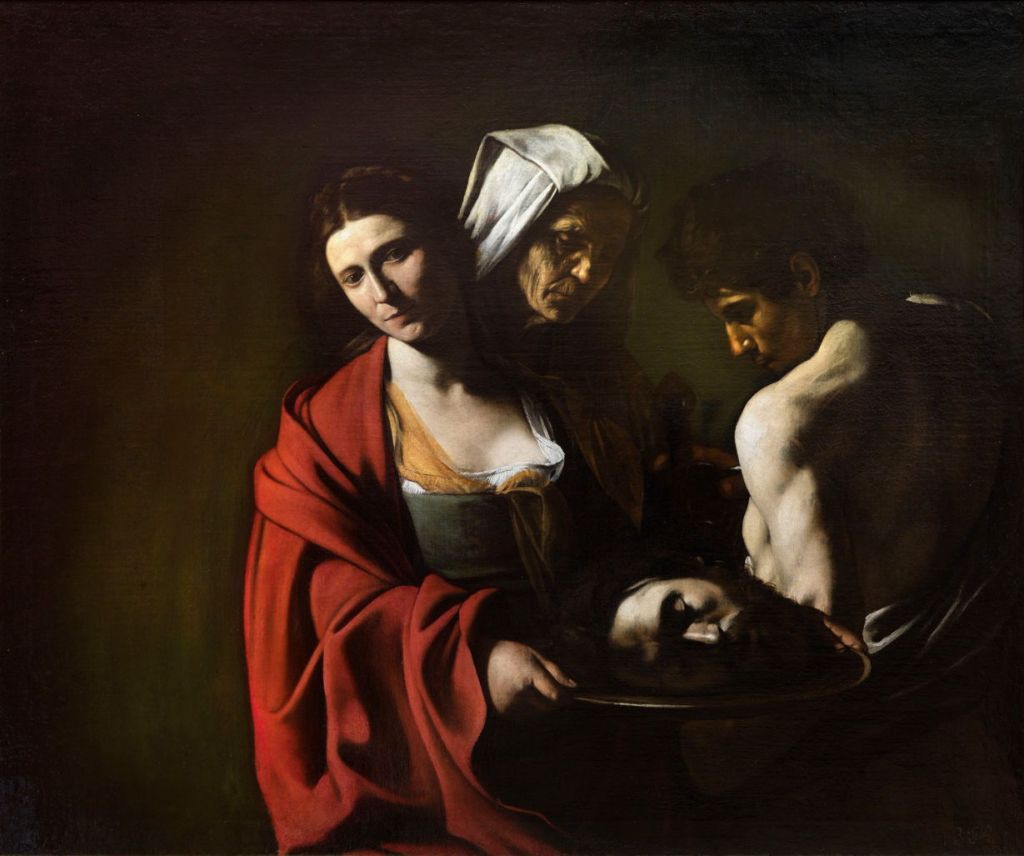
Cousin and fore-runner to the ministry of Jesus, John the Baptist inaugurated a ministry in the wilderness of Judea that prepared the grounds for the later ministry of Jesus; in his own self-confession as well as in the words of Jesus himself, "John baptised with water but you will be baptised with the Holy Spirit" (Matt 3:11; Mk 1:8; Lk 3:16; Acts 1:5; 11:16). By and large, the ministry of John is under-rated by the Christian Church but, as noted by historian F. F. Bruce, "Of all the religious movements in Palestine on the eve of the coming of Christianity none is more directly relevant to Christianity itself than the ministry of John the Baptist" (New Testament History, 152). This is affirmed by the fact of his ministry and the space given him in all the four Gospels. John the Baptist is also one of the few personalities of the NT to capture the attention of the Jewish historian Josephus.

The murder of John as depicted by Lucas Cranach, the Elder.
Born to Zechariah and Elizabeth in the old age, John's birth was attended no less by angelic and miraculous pronouncement of his role and destiny in the coming inauguration of the Kingdom of God.
Some scholars have suggested that John may have been a member of the Essenes such as inhabitated Qumran, e.g.. While not impossible, there is no credible evidence to support such a sugguestion. In about 27 AD he began his ministry in the desert of Judea, calling men and women to repetence and baptism in affirmation of their repentence. He was, according to the Synoptic Gospels, a fulfilment of Isaiah's prophecy: "A voice of one calling in the desert, 'Prepare the way for the Lord, make straight paths for him'" (Matt 3:3; Mk 1:3; Lk 3:4). That preparation for the Lord came to a climax when Jesus came to him and asked to be baptized. Recognizing who Jesus was, John hesitated, "I need to be baptised by you, and do you come to me?" (Matt 3:14). Jesus's reply—"Let it be so now; it is proper for us to do this to fulfil all righteousness"—pesuaded John and he baptised his cousin and lord.
John's righteousness, however, ran deeper than just his ministry. His entire person was given over to the fulfilment of God's righteousness. When Herod Antipas fell in love with his brother's wife, Herodias, and they conspired to divorce their respective spouces and married one another, John openly rebuked the king (Matt 14:3; Mk 6:16; Lk 3:19). Feeling insulted and angered, Antipas had John arrested and imprisoned in Macherus. Antipas wanted to "kill John, but he was afraid of the people, because they considered him a prophet" (Matt 14:5). What Antipas dared not do, Herodias accomplished by way of her daughter who so pleased Antipas with her dancing he offered to give her anything she asked. "Prompted by her mother, she said, "Give me here on a platter the head of John the Baptist" (Matt 14:8; Mk 6:24). So John paid the ultimate price of all who would live righteously.

Read about John the Baptist in Scriptures.
Read about John the Baptist in Josephus.
The murder of John the Baptist is a popular theme among painters through the Middle Ages and the Renaissance, including three by Carravaggio alone. Click here for a review of the various artists and works based on his murder ☰

Resources:
Wiliam B. Badke, "Was Jesus a Disciple of John?" The Evangelical Quarterly 62.3 (1990): 195-204.
Pdf N 5-6 (Open on Phone)
Colin Brown, "What Was John the Baptist Doing?" Bulletin for Biblical Research 7 (1997): 37-50.
pdfN 7 (Open on Phone)
F. F. Bruce, "John the Forerunner," Faith and Thought," 94.3 (1965): 182-190. pdf 
Knox Chamblin, "John the Baptist and the Kingdom of God," Tyndale Bulletin 15 (1964): 10-16.
N ()
Archie W.D. Hui, "John the Baptist and Spirit-Baptism," The Evangelical Quarterly 71.2 (Apr.-June 1999): 99-115. pdf 
J. Ramsey Michaels, "Paul and John the Baptist: An Odd Couple?" Tyndale Bulletin 42.2 (1991): 245-260.
Pdf N 7 (Open on Phone)
James E. Miller, "The Birth of John the Baptist and the Gospel to the Gentiles," Andrews University Seminary Studies 31.3 (Autumn 1993): 195-197.pdf 
D. Brent Sandy, "John the Baptist's "Lamb of God" affirmation in its canonical and apocalyptic milieu," Journal of the Evangelical Theological Society 34.4 (Dec. 1991): 447-459. pdf 
D.G. van der Merwe, "The historical and theological significance of John the Baptist as he is portrayed in John 1," Neotestamentica 33.2 (1999): 267-292.pdf 

©ALBERITH
010420lch